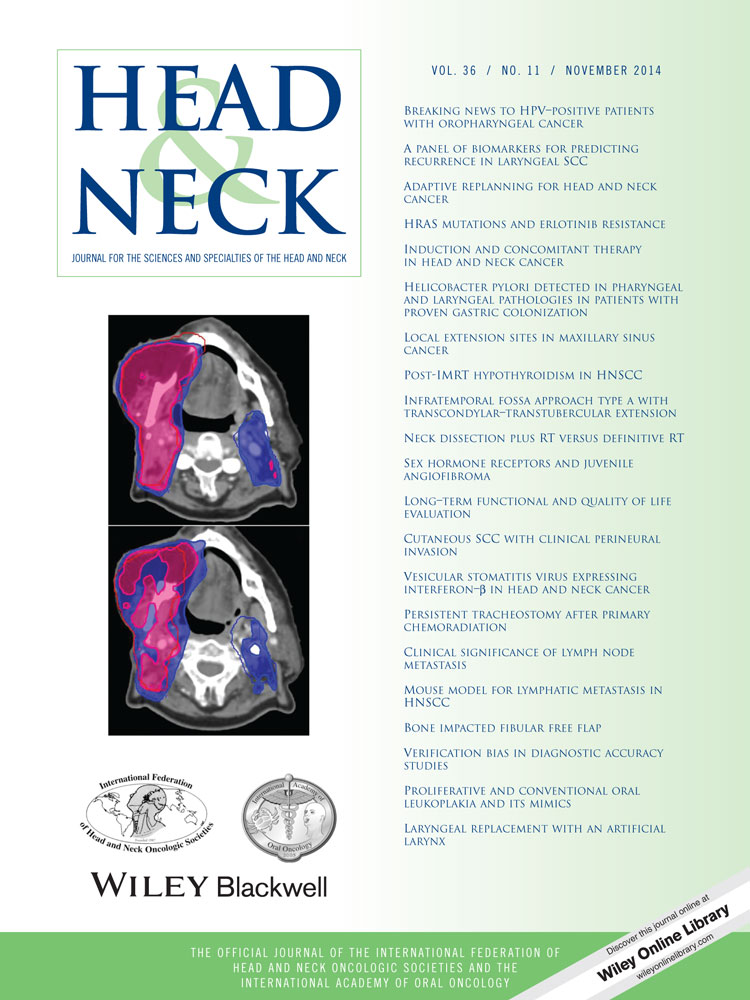Clinical outcomes among patients with head and neck cancer treated by intensity-modulated radiotherapy with and without adaptive replanning
Abstract
Background
The purpose of this study was to determine the effect of adaptive replanning on clinical outcome among patients treated by intensity-modulated radiotherapy (IMRT) for head and neck cancer.
Methods
Three hundred seventeen patients underwent IMRT with daily image-guidance for newly diagnosed squamous cell carcinoma of the head and neck to a median dose of 66 Gy (range, 60–74 Gy). Of these 317 patients, 51 (16%) underwent adaptive radiotherapy with modification of the original IMRT midway during treatment.
Results
The 2-year local-regional control was 88% for patients treated with adaptive replanning compared with 79% for patients treated without (p = .01). The median time to local-regional recurrence for the 4 patients treated by adaptive radiotherapy was 7 months (range, 3–15 months) with all failures occurring within the high-dose planning target volume (PTV).
Conclusion
Although the use of routine replanning is probably not necessary, our findings do suggest a significant benefit in appropriately selected patients. © 2014 Wiley Periodicals, Inc. Head Neck 36: 1541–1546, 2014




